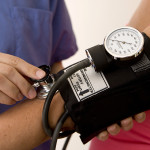By David Blyweiss, M.D., Advanced Natural Wellness
Here’s a pretty startling statistic. One out of every 3 people in the U.S. has high blood pressure. And around 25% of them don’t know it!
Of course, if you ask anybody how to put a lid on rising blood pressure, they usually say “cut the salt!” But that’s not the whole story. It’s also important to look at the ratio of sodium to potassium.
Even if you eat a lot of salt, you might be able to counter the effects by taking in more potassium (at least 4,700 mg per day) and magnesium (400 to 800 mg daily). Boosting these two important minerals can help improve your blood pressure and reduce your chances of coronary artery disease and stroke.1
So what foods are highest in potassium and magnesium? Here are some of the best:
|
Food |
Amount The World's Quickest Solution for Ending Prostate and Urinary Misery This has recently been revealed to be one of the only real breakthroughs in prostate health. The seeds of a strange fruit (sometimes called "Chinese Apples") hold powerful phytonutrients that are a revolution in prostate health. In fact, UCLA and Veterans Administration research have now proved this to be true. Not only that, but it may be the worlds quickest solution for ending prostate misery. Simply stated, these phytonutrients represent a huge step beyond beta sitosterol, saw palmetto, and other phytosterols alone. Simply click HERE if you want to have fast prostate relief...restful, uninterrupted sleep...no more constant "urges to go"...enhanced virility...and optimal prostate support for life. |
Potassium |
Magnesium |
| Apricots, dried | ½ cup | 1,100 mg per ½ cup | |
| Avocado | 1 medium | 690-1,067 mg | |
| Banana | 1 medium | 422 mg | 32 mg |
| Beans | 1 cup | 477-1,224 mg depending on the variety | 74-120 mg depending on the variety |
| Broccoli | 1 cup | 250 mg | |
| Cantaloupe | ¼ melon | 368 mg | |
| Figs | ½ cup | 381 mg | |
| Kale, raw | 1 cup | 299 mg | |
| Kiwi | 1 | 250 mg | |
| Orange Juice | 8 oz | 496 mg | |
| Peach | 1 large | 322 mg | |
| Prunes, pitted | 3 | 250 mg | |
| Spinach | 1 cup | 839 mg | 150 mg |
| Swiss Chard | 1 cup | 961 mg | 150 mg |
| Yams, cooked | 1 cup | 911 mg |
There are also foods that can help lower your blood pressure without relying on potassium or magnesium to get the job done.
For instance, compounds in brown rice protect against hypertension by blocking an enzyme (angiotensin II) that increases blood pressure. Whey protein powder has also been found to lower blood pressure in those with hypertension. And beet juice contains precursors to nitric oxide which relaxes blood vessels and causes them to dilate.2
And don’t forget to take your supplements! This list is my recommendations to keep your blood pressure in check:
- Fish oil: This important omega-3 fatty acid increase nitric oxide and improves the elasticity of the arteries. Take 3,000 mg daily.
- Garlic: Studies show that taking 960 mg of a garlic supplement containing 2.4 mg S-allylcysteine can lower systolic pressure (the top number) just as well as first-line blood pressure medications.3
- Resveratrol: Along with all of resveratrol’s antioxidant benefits, it also increases nitric oxide. Plus, it lowers arterial stiffness and slows vascular aging.4 Take 100—200 mg per day.
- Vitamin D: This nutrient is very important thanks to its effect on a hormone (rennin) that controls blood pressure. If vitamin D is low, renin is increased and this causes the arteries to constrict and increase the blood pressure.
References:
- Houston MC. The importance of potassium in managing hypertension. Current Hypertension Report. 2011 Mar 15 [Epub ahead of print]
- Webb “AJ. Acute blood pressure lowering, vasoprotective, and antiplatelet properties of dietary nitrate via bioconversion to nitrite. Hypertension. 2008;51:784-790.
- Ried K. Aged garlic extract lowers blood pressure in patients with treated but uncontrolled hypertension: a randomized controlled trial. Maturitas. 2010;67:144-150.
- Behbahani J. Resveratrol and small artery compliance and remodeling in the spontaneously hypertension rat. american Journal of Hypertension. 2010;23:1273-1278






